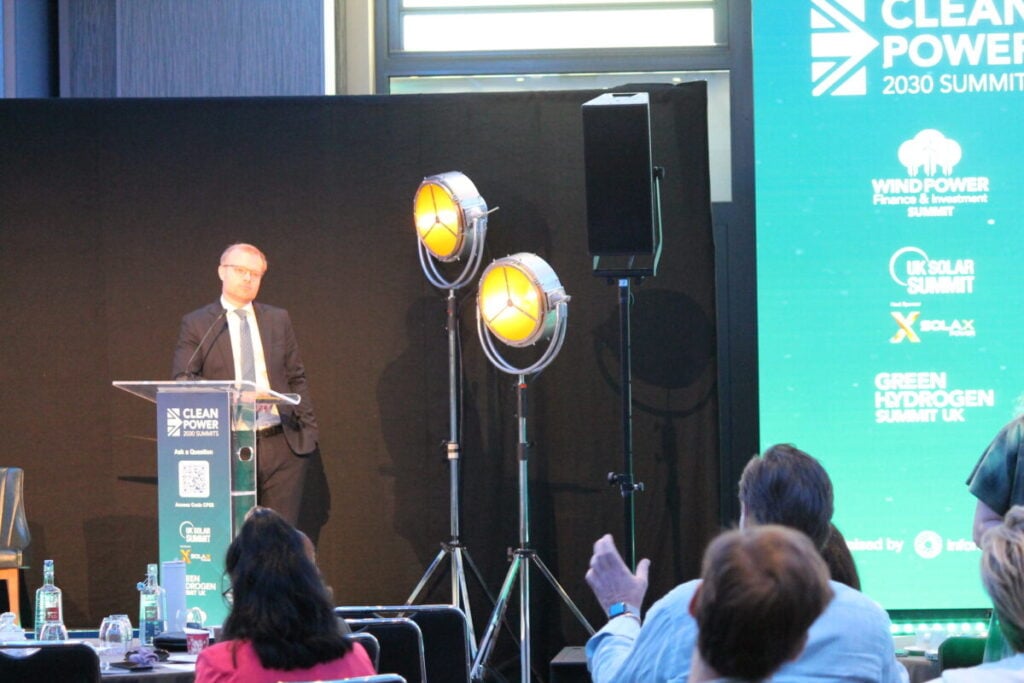
“For far too long, we’ve been paying the price for our exposure to gas, and we need to do what we possibly can to remove that volatility, and this sprint to home-grown power is part of that,” said Michael Shanks MP, parliamentary under-secretary of state for energy, who kicked off the Clean Power 2030 Summits in London this week, organised by Solar Media.
Many of Shanks’ comments focused on the financial robustness of the UK solar industry. As solar is among the leaders in falling levelised cost of electricity (LCOE) figures across the renewable energy space, there is growing interest in investing in the global solar sector, and the minister spoke at length about ensuring the UK is an attractive investment space for those backing projects.
“But it’s also about how we invest in supply chains and jobs in this country … so we can capitalise right across the country,” Shanks continued, highlighting how meeting the UK’s solar targets will not simply require the installation of new capacity, but a more comprehensive investment from industry in grid infrastructure, manufacturing capacity and training initiatives.
He gave his speech at the start of two days of discussion about the UK’s clean energy space, which is entering a critical juncture following the publication of the long-awaited UK solar roadmap. The plan aims to install solar systems on nine million homes by 2030, and increase the UK’s total operating solar capacity to 47GW by the end of the decade.
Responding to the roadmap
Unsurprisingly, the UK Solar Roadmap was a key topic of conversation at the event, with Shanks explaining that prime minister Keir Starmer had made the clean power goal a “national mission”. He emphasised that strong financial fundamentals will need to underpin this transition in his speech at the beginning of the summits, calling the energy transition “the economic opportunity of the 21st century”.
Shanks went on to point out that meeting these targets, and particularly providing the kind of investment needed to meet these goals, would require significant collaboration between the government and industry.
However, The sheer scale of investments in the global solar sector – which exceeded US$500 billion in 2024 – means that appetite for new investments has “cooled off”, according to James Pinney, country head of Northern Europe at Cubico Sustainable Investments, who spoke to PV Tech earlier this year (Premium access).
Read the full version of this story (Premium access), including coverage of the UK’s investment landscape and plans to plug the green skills gap, on our sister site PV Tech.

